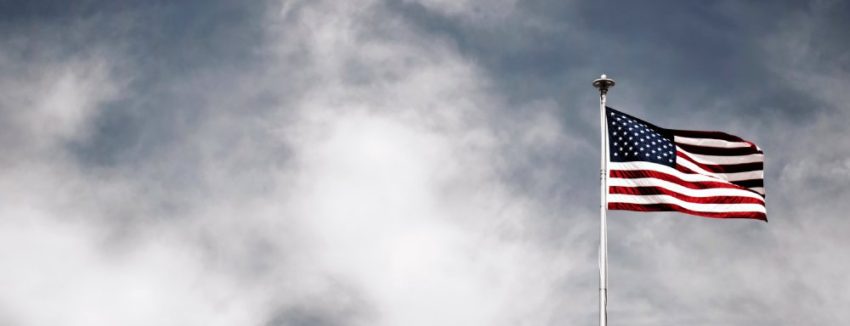“Election Day’s past of pompous parties and dangerous acts of nationalism would not be a beneficial way of history repeating itself.”
I can distinctly remember January 20th, 2017. I was sitting at one of the tables in the Schreiber High School library with countless other students, each of us patiently awaiting the inauguration of the President-Elect of the United States of America, Donald Trump, to commence. I couldn’t help but to hate watch it, as I was angry. Like many other Americans, I had expected to see a female, one by the name of Hillary Clinton, standing upon that podium, looking out on thousands of proud Americans, vowing her allegiance to our Constitution. In this election, voter turnout was particularly low, as neither candidate seemed to please voters. Americans propose that a pompous and grandiose celebration of Election Day, as well as a governmental recognition of the day as a federal holiday, would incite voter turnout and increase nationalism in the country. I believe that a resurgence of nation-wide festivities would damage the political system in irreversible ways.
As a 15 year old, I was not eligible to vote in the leftist-dubbed “infamous 2016 Presidential Election.” However, during the election, it was the choice of a multitude of Americans to refuse to cast their ballot, as they believed that their vote would not count, or that both candidates were not fit for the position. Lack of voter participation, which, according to the Washington Post, was down by 56% at the 2016 Presidential Election seemed a huge part of why Clinton did not take the election, as she was projected to do by the polls. (“Make Election Day a Holiday,” 3) How can we, as a nation, bring Election Day’s original intention back to the forefront and encourage more voters to head out to their local polling places?
Reinvigorating the early American spirit of a nationalistic Election Day is precisely the way that Holly Jackson, columnist for the Washington Post, presumes we fix the issue of voter participation. Her article, “It’s Time to Make Election Day a Holiday-In Law and Spirit,” brings up the idea of celebrating Election Day in the same sense that those of the Puritanic Era did, in order to bring back voter participation counts to a high, or at least to the numbers they were before Election Day was normalized as solely a day to cast one’s ballot. She believes that “declaring Election Day a federal holiday and rekindling the celebratory spirit that marked the day in previous centuries would be an important step toward promoting democratic participation” (“Make Election Day a Holiday,” 3). In early examples of American literature, the pomp and celebratory spirit of Election Day is illustrated in various classical novels. Nathaniel Hawthorne’s, The Scarlet Letter, perfectly examines the true vivacity of the day. “Soon the head of the procession showed itself, with a slow and stately march, turning a corner, and making its way across the market-place. First came the music. It comprised a variety of instruments…yet attaining the great object for which the harmony of drum and clarion addresses itself to the multitude,-that of imparting a higher and more heroic air to the scene of life that passes before the eye” (“The Scarlet Letter,” 162). Upon reading this passage, I was brought into the fantastical jubilee that filled the streets on Election Day in centuries past. It is understandable why someone would be drawn in, blindly, to a spectacle of that sort. The belief behind Jackson’s argument is that a rise in American nationalism through the medium of parades and pompousness in a nationally celebrated Election Day is the way to increase voter participation.
I disagree. It is clear that reverting the spirit of Election Day to a day of parades, drunken political discussions, and parties would be harmful to the country’s political system. Picture this: it is Thanksgiving, and your whole family is sitting around the dinner table, divulging in conversation, when finally, a relative who has had far too much to drink, starts yelling about politics and their personal views. I know from personal experience that talking about politics in a familiar setting, and even with friends, can damage a relationship. Now, imagine that same event taking place at a polling place on Election Day. In past Election Days, politicians themselves would give voters alcoholic beverages. “George Washington provided 158 gallons of alcohol to voters during one Virginia election” (“Make Election Day a Holiday,” 1). Undoubtedly, if Election Day were to be celebrated as a holiday, especially this way, it would damage family relationships, neighborly relationships, as well as personal reputation. We would have drunk voters in the streets, fighting others based on their political views. Mixing a party scene with American politics would only start more conflict between citizens, and in the hostile climate that we live in today would only worsen it.
Jackson believes that the way to encourage voter participation is to provide voters with boozy drinks and a party from sunrise to sunset. What Jackson fails to mention is that most voters choose not to vote based on lack of education on the issues and candidates themselves, not because of a day off work and a party. Kelly McDonough, a volunteer firefighter and Port Washington resident says that she didn’t vote “because I did not educate myself enough to know everything that each candidate would bring to the plate. I think if I educated myself more and looked at each candidates policies more thoroughly, I would have decided to vote.” Maybe more time and effort should be put into educating the voters on their decision, instead of baking cookies and setting up for the “Election Day Parade.” It is clear that voter participation is directly related to education on the issues of the election. When asked if a great celebration would have changed her mind, Ms. McDonough replied astutely with, “A celebration for Election Day would not sway me.” Instead of having voters cast their ballots blindly, and elect representatives into office that can damage the country, we should educate the population on what they’re voting for.
There are far better ways to promote voter participation than holding a parade in the streets on a Tuesday morning. Due to the fact that Election Day is a nationally recognized day of civic duty, our federal government should pass laws to encourage voters to get to the polls. Some states have already brought that idea to life. “Additionally, many state laws already provide practical laws on voting. Such as Hawaii, which required everyone get a two-hour break to vote… Or New Hampshire, which allows for absentee voting if you have work on Election Day” (“Election Day Should Not Be a Federal Holiday,” 3). Why promote dangerous activity when you can just pass laws to help the American population get to the polls? Lyft lets their workers off for the day to vote. Some local companies, such as Delux Transportation Services, don’t wait for the law, and provide free taxi services to and from the polls for the elderly. Inasmuch, absentee voting is an option, for voters who wouldn’t even be able to participate in an Election Day celebration. “ In fact, every state permits eligible voters to request an absentee ballot that allows them to vote ahead of Election Day. Twenty-seven states and the District of Columbia allow voters to request absentee ballots without an excuse for why they cannot vote on Election Day” (“Make Election Day a National Holiday?,” 1). All of these represent a civil way to observe Election Day and do one’s civic duty, without the pompous parades and parties.
Our choice to perform our civic duty of casting our ballots on Election Day should not be swayed by the existence of a celebration, or the label of “federal holiday.” Election Day’s past of pompous parties and dangerous acts of nationalism would not be a beneficial way of history repeating itself. These parties could evolve into something that puts the issues out of our control, and could eventually damage our political system irreversibly. After all, if Election Day were to gain its canonization as a federal holiday, who would fix the damages left in its wake?
Works Cited:
- Jackson, Holly. “It’s Time to Make Election Day a Holiday – In Law and Spirit.” The Washington Post , WP Company, 22 Oct. 2018, http://www.washingtonpost.com/outlook/2018/10/22/its-time-make-election-day-holiday-law-spirit/?ut m_term=.bd8ec4e103aa.
- Lucas, Suzanne. “No, Election Day Should Not Be a Federal Holiday.” Inc.com , Inc., 24 Oct. 2016, http://www.inc.com/suzanne-lucas/no-election-day-should-not-be-a-federal-holiday.html.
- Talgo, Chris. “Make Election Day a National Holiday? No: Too Inconvenient, Early-Voting Options Ample.” OrlandoSentinel.com, Orlando Sentinel, 5 Nov. 2018, http://www.orlandosentinel.com/opinion/os-op-make-election-day-national-holiday-no-20181105-story. html.
- “The Procession.” The Scarlet Letter , by Nathaniel Hawthorne, Dover Thrift Editions, 1994, p. 162.
- Alexander, John J, and Kelly McDonough. “Interview with Kelly McDonough.” 27 Oct. 2018.
Note: “Pomp and Consequence” was written in the form of a formal assignment as an exercise in analyzing rhetoric.

